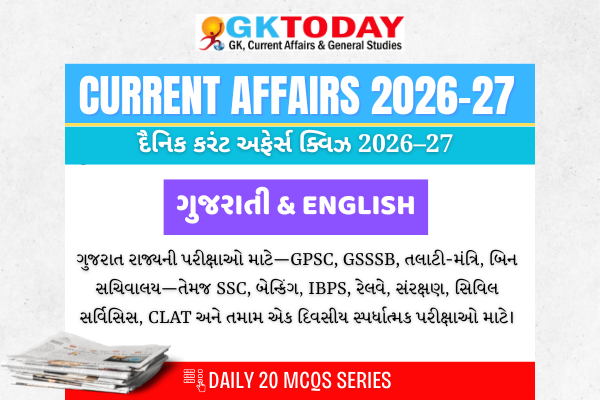Indian Polity & Constitution MCQs
Indian Polity & Constitution Objective / Multiple Choice (MCQs) Questions for Preparation of SSC-CGL, UPSC Civil Services, NDA, CDS, Railways and State Level Public Services Examinations.
1. 10th schedule of the Constitution was added by which amendment of the constitution?
[A] 24th Amendment Act
[B] 52nd Amendment Act
[C] 61st Amendment Act
[D] 85th Amendment Act
Show Answer
Correct Answer: B [52nd Amendment Act]
Notes:
Fifty-Second Amendment Act, 1985 is popularly known as Anti-Defection Law. It provided for disqualification of members of Parliament and state legislatures on the ground of defection and added a new Tenth Schedule containing the details in this regard. The amendment was done by Rajiv Gandhi Government.
2. Which among the following article of the Constitution of India says that all public places are open to all citizens?
[A] Article 15 (2)
[B] Article 16 (2)
[C] Article 17
[D] Article 18
Show Answer
Correct Answer: A [Article 15 (2)]
Notes:
Article 15(2) says that all public places are open to all citizens without any discrimination. Article 16 (2)- No citizen shall, on grounds only of religion, race, caste, sex, descent, place of birth, residence or any of them, be ineligible for, or discriminated against in respect or, any employment or office under the State.
3. Sindhi Language was included in the list of official languages in the 8th schedule of our constitution in which year?
[A] 1957
[B] 1967
[C] 1969
[D] 1968
Show Answer
Correct Answer: B [1967]
Notes:In the Constitution of India, there is a provision made for each of the Indian states to choose their own official language for communicating at the state level. The selected languages, which can be used for official purpose, have been listed in the Eighth Schedule to the Constitution. Originally, there were 14 languages in the 8th schedule. The further languages were added as follows:
- Sindhi by 21st amendment, 1967
- Konkani, Manipuri and Nepali languages by 71st amendment, 1992
- Bodo, Dogri, Santhali and Maithali by 92nd Amendment, 2004.
4. Who appoints Chairman of UPSC?
[A] President
[B] Vice president
[C] Parliament
[D] Cabinet Committee on Appointments
Show Answer
Correct Answer: A [President]
Notes:
UPSC is constitutional body that conducts the prestigious civil services examination to select IAS, IFS and IPS officers among others. It has been established under Article 315 of the Constitution and consists of a Chairman and ten Members; appointed and removed by President.
The chairman and members of the Commission hold office for a term if six years or until they attain the age of 65 years, whichever is earlier
5. Appeals in Supreme Court regarding Constitution, Civil and Criminal matters come under which kind of jurisdiction?
[A] Appellate Jurisdiction
[B] Advisory Jurisdiction
[C] Miscellaneous Powers
[D] None of the above
Show Answer
Correct Answer: A [Appellate Jurisdiction]
Notes:
Supreme Court is the Highest Court of appeal and the writs and decrees of Supreme Court run throughout the country. The cases come to the Supreme Court in the form of appeals against the judgments of the lower courts and this is called appellate jurisdiction. Appellate jurisdiction involves the Constitution, Civil and criminal matters.
6. On which of the following dates Indian Constitution was completed ? (Passed by the Constituent Assembly)
[A] January 26, 1950
[B] November 26, 1949
[C] January 26, 1949
[D] January 11, 1949
Show Answer
Correct Answer: B [November 26, 1949]
Notes:
The Constitution of India was passed on 26th November, 1949 as mentioned in the Preamble to the Constitution of India.
7. Which of the following article deals with the appointment, duty and tenure of the Advocate General of State?
[A] Article 155
[B] Article 160
[C] Article 162
[D] Article 165
Show Answer
Correct Answer: D [Article 165]
Notes:
An advocate general is a senior officer of the law. According to article 165, the Governor of each State shall appoint a person who is qualified to be appointed as Judge of a High Court to be Advocate General for the State.
8. Till the 42nd Amendment in 1976, the word secular was nowhere in the constitution except in Article _________?
[A] 25
[B] 26
[C] 27
[D] 28
Show Answer
Correct Answer: A [25]
Notes:
Article 25 (2)(a) regulating or restricting any economic, financial, political or other secular activity which may be associated with religious practice;
9. Which of the following parts of Indian constitution has only one article?
[A] Part XVII
[B] Part XVIII
[C] Part XIX
[D] Part XX
Show Answer
Correct Answer: D [Part XX]
Notes:
Part XX article 368, amendment of the constitution
10. What is the minimum stay essential before a person can apply for Indian Citizenship?
[A] 2 years
[B] 5 years
[C] 7 years
[D] 10 years
Show Answer
Correct Answer: C [7 years]
Notes:
If the person is of Indian origin, then he / she has to be ordinary resident of India for seven years before making application towards getting citizenship by registration.


